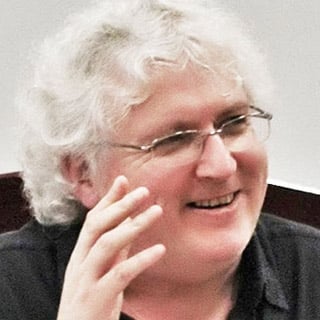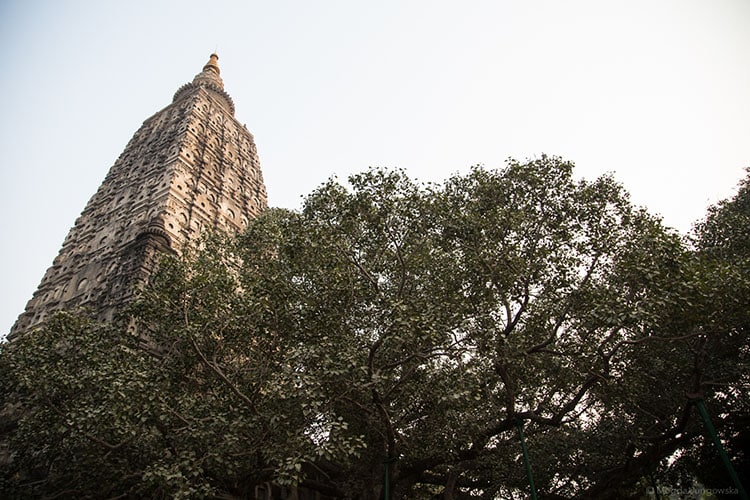Generosity Creates Natural Wealth
Category: Buddhist Path | Mind Trainer Articles | Popular

Meditation teaches us to be generous in our everyday lives.
In meditation watching the breath with mindfulness is a very generous way to spend quality time with ourselves. Through this we create lots of space in our minds—simply letting things be as they are is itself a generous act. From meditation, our generosity can expand further.
One of the most powerful methods of transformation—transforming a mind, a heart, emotions, life—is generosity. All of us have got caught up in the idea that to be truly secure, to be happy, even to know who we really are, we’ve got to have lots of things, lots of possessions that we can label “mine.” And that by having this “collection of collectibles”—from simple material things like cars or houses, right through to people who also can be objects or collectibles for us—then at least we know who we are: we’re solid, defensible and fulfilled: we’re successful people.
But you know, it’s not true. How isn’t it true? Because we never feel we’ve got enough. And the real problem was never the lack of objects or anything like that. The real problem is something much deeper in ourselves: a kind of emptiness or hole, a kind of desperate hunger to be solid. And the more we grasp at things, the more we find we’re not solid, and so we have to grasp at more. In other words, our hunger quickly becomes a kind of greed, of compulsiveness. We look at the world with avarice. “I want that. It will make me feel secure and good about myself. I’ll finally be complete if I just get this thing, if I just have that status or that person,” and that’s the way our life has been running. We believe that to gain happiness we need to gain things because it’s the only way we know.
But no object is ever big enough. How could any object be big enough to fill what’s essentially an emotional void? We’re forever poor because we never have enough. It’s like drinking salt water and thinking it’ll get rid of our thirst. The more we drink, the thirstier we get; it just gets worse and worse. Not only that, but this greed, this obsessiveness with collecting makes us an enemy of the world as well because there’s this whole part of the world that we have to fight with, that we’re competing with. Greed and avarice bring enmity and anger. With one hand we’re trying to grab bits of the world and thinking, “I am real because I have these things,” while the other hand is trying to fight off the parts of the world that we’re contending with. It’s no wonder our lives are a mess.
The three stages of developing generosity
So how to change this?
A very simple way is to change our hand from a clenched hand which is desperately grasping the possessions it thinks it has secured to an open hand, which is letting go. In other words, the remedy to our insane kind of greed and avarice is simply to be generous. Giving is the first step in leaving behind the neurotic life we’ve developed, so dependent on acquisition and gain and clinging to things that in the final analysis—at death—we’re going to have to let go of anyway.
Generosity is so powerful. How does it start? Well, we might start in simple ways by giving small things to others. And once we taste the joys and the contentment it brings us, we actually see that this is the way to real happiness and are naturally prepared to give more, to let go of ourselves more. So it starts with a decision: “This day or this week or this month, I’m going to practice giving a little bit more than I’ve given before.”
If we give, we have to think about what the people or beings on the receiving end really need. Already, we’re thinking less about ourselves because when we take others’ needs into account, we’re obliged to acknowledge their existence. We’re creating some space in our lives in which we aren’t desperately obsessing about our own needs. We’re asking ourselves if the person or animal will properly benefit from what we can offer them. We start with ordinary, material things: giving food or preparing a meal. Making a cup of tea or giving a little money to someone who really needs it.
Once we’ve started in this way, we can go deeper. By deep, I mean that we can begin giving others less tangible yet very powerful things like emotional support, protection from fear and sharing love. These are deeper because they require more of us; they’re not just something we give with the hand – here we give from a deeper resource, so to speak: from our hearts.
Make time for others in your life; give of yourself to them in this way. “Your problems concern me. Your problems move me. I’m thinking about you.” If it’s somebody you know and you can make a difference, listen to their problems and give good advice. But also, give a moment to someone you meet on the street or at least think of them in your heart. Others all have their own stories, their own needs and difficulties: pay attention to them. It’s a second dimension: giving this kind of love and protecting people and animals from fearful situations.
And then the third, the greatest of all forms of giving, is to be able to give profound spiritual advice—advice that is life-changing. For this, of course, we need wisdom. But by training in the art of giving, by listening to others and responding appropriately, we begin to acquire wisdom.
These are the steps of developing a generous heart and mind. Start small with something simple like giving one person at a time the physical things they require, then go deeper by coming from the heart and giving love and protection from fear. And finally, give profound support. The practices of generosity naturally lead to compassion.
And what has happened to us in the meantime? Oh, we’re fine—we’re better than we ever were before. How can that be? “Surely,” we think, “I need to protect myself and think about my needs all the time.” No, because if we care for others then actually we’ll be supported and sustained by that. In a way, it’s like the world gives back to us what we need, because that’s the nature of the world: interdependent and interconnected. If we cease to see others and the world as objects to be plundered and pillaged and turned into private possessions, if we see life as it really is, as a network of interdependence, we’ll be carried along with that. In other words, we’ll also be supported.
It’s a very profound spiritual teaching: we discover our natural wealth by giving away. It’s the exact opposite of what we normally think, which is that we can only find wealth by grasping, by taking. Here, through our attitude of being generous, we discover real wealth, inner wealth. And then we’re the wealthiest of all people because when we have this generous attitude, we find we have wealth; we find we have enough. Generosity is so incredibly powerful and transformative.








